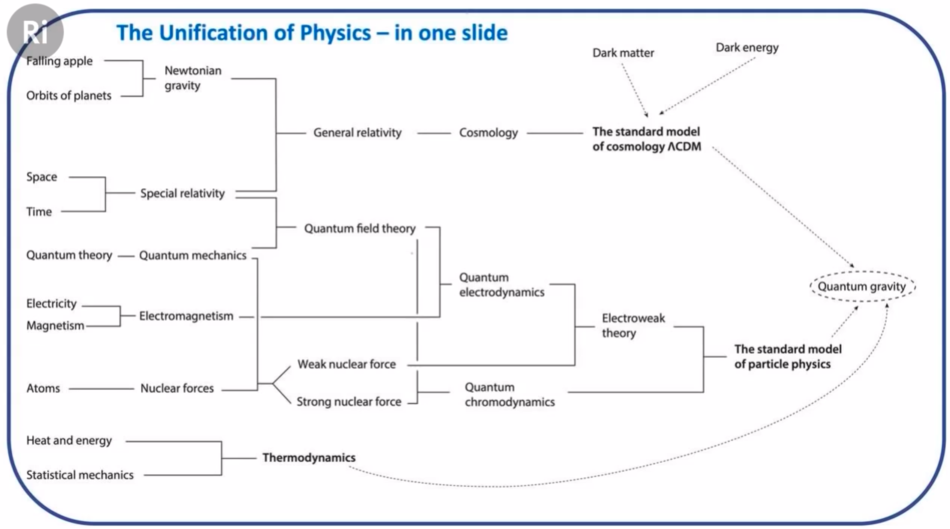Difference between revisions of "Physics"
Adelo Vieira (talk | contribs) |
Adelo Vieira (talk | contribs) (→Signals) |
||
| Line 9: | Line 9: | ||
<br /> | <br /> | ||
==Signals== | ==Signals== | ||
| + | A signal is usually defined as: | ||
| + | |||
| + | * A signal is a function that represents the variation of a physical quantity with respect to any parameter (usually time or space) [with respect to at least one independent variable (time or space)]. https://www.youtube.com/watch?v=M0mx8S05v60 https://x-engineer.org/graduate-engineering/signals-systems/signal-processing/what-is-a-signal | ||
| + | |||
| + | |||
| + | * A signal is a function that conveys information about a phenomenon. https://en.wikipedia.org/wiki/Signal#Classification | ||
| + | |||
| + | |||
| + | <span style="color: red"> | ||
| + | It is not clear if a signal must be a function of time/space; or if it can be of any other parameter. | ||
| + | |||
| + | It is neither clear if the signal is the physical phenomenon (for example, the seismic wave) or the mathematical representation of the seismic wave (the seismogram). | ||
| + | </span> | ||
| Line 25: | Line 38: | ||
<br /> | <br /> | ||
| + | |||
==Relativity and the nature of time== | ==Relativity and the nature of time== | ||
https://www.youtube.com/watch?v=NrjFE_Rd2OQ | https://www.youtube.com/watch?v=NrjFE_Rd2OQ | ||
Revision as of 21:05, 20 February 2021
Physics is the natural science that studies matter, its motion and behavior through space and time, and the related entities of energy and force. Physics is one of the most fundamental scientific disciplines, and its main goal is to understand how the universe behaves. https://en.wikipedia.org/wiki/Physics

Contents
Signals
A signal is usually defined as:
- A signal is a function that represents the variation of a physical quantity with respect to any parameter (usually time or space) [with respect to at least one independent variable (time or space)]. https://www.youtube.com/watch?v=M0mx8S05v60 https://x-engineer.org/graduate-engineering/signals-systems/signal-processing/what-is-a-signal
- A signal is a function that conveys information about a phenomenon. https://en.wikipedia.org/wiki/Signal#Classification
It is not clear if a signal must be a function of time/space; or if it can be of any other parameter.
It is neither clear if the signal is the physical phenomenon (for example, the seismic wave) or the mathematical representation of the seismic wave (the seismogram).
Signal analysis - Signal processing
One of the applications of Mathematical analysis (Calculus in particular) is for Signal processing. When processing signals, such as audio, radio waves, light waves, seismic waves, and even images, Fourier analysis can isolate individual components of a compound waveform, concentrating them for easier detection or removal. A large family of signal processing techniques consists of Fourier-transforming a signal, manipulating the Fourier-transformed data in a simple way, and reversing the transformation. https://en.wikipedia.org/wiki/Mathematical_analysis#Signal_processing
- Time-frequency analysis https://en.wikipedia.org/wiki/Time%E2%80%93frequency_analysis
- Fourier transform https://en.wikipedia.org/wiki/Fourier_transform
- Seismic processing
- Time-frequency analysis in Seismic processing:
- A set of mathematical formulas used to convert a time function, such as a seismic trace, to a function in the frequency domain (Fourier analysis) and back (Fourier synthesis). The Fourier transform is used extensively in signal processing to design filters and remove coherent noise. Many filtering operations are performed in the frequency domain. The Fourier transform has applications in image analysis and in pattern recognition in geological systems. https://www.glossary.oilfield.slb.com/en/Terms/f/fourier_transform.aspx#:~:text=A%20set%20of%20mathematical%20formulas,and%20back%20(Fourier%20synthesis).&text=The%20Fourier%20transform%20is%20used,filters%20and%20remove%20coherent%20noise.
Relativity and the nature of time
https://www.youtube.com/watch?v=NrjFE_Rd2OQ
https://www.youtube.com/watch?v=-6rWqJhDv7M
|
Theory of relativity |
|
|
|
|
|
|
| |
|
1879 |
14 March |
Albert Einstein's birth 14 March 1879, Ulm, Kingdom of Württemberg, German Empire - 18 April 1955 (aged 76), Princeton, New Jersey, United States
|
The history of understanding the Atom
https://www.youtube.com/watch?v=Gm3p_3Vgejk
|
The history of understanding the Atom |
|
|
|
|
|
|
Fifth Solvay Conference | |
|
|
|

